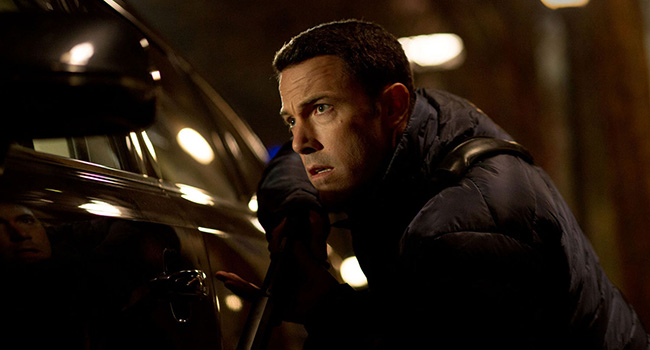Director Gavin O’Connor made two films just before The Accountant: The Warrior (which was outstanding) and Jane Got a Gun (which was a mess). Because of the high variance in his track record, I was unsure what quality camp The Accountant would land in. An inventive concept and what looked like a great turn from Ben Affleck convinced me that it could excel, but I dreaded a self-serious tone that could weigh the movie down.
Well, now I’ve actually seen the movie — and it lands in both quality camps. The Accountant is exceptional for a while, but the last act dives into self-indulgence and derails the story.
So, in honor of The Accountant, I’ll start off with what works and finish with what doesn’t.

First and foremost: Ben Affleck. He is Christian Wolff, an accountant on the high-functioning end of the autism spectrum who both fights for the little guy and crunches numbers for the world’s most dangerous criminals. Ben Affleck is a gorgeous man but he sure can vanish into a socially awkward role — his Wolff is an impeccable amalgam of small flourishes and empathy. The friend I took to my screening of the movie has Asperger’s and he attests to the accuracy of Affleck’s representation of the condition (though the movie overall is less sensitive about it).
The film is a tight package of focused direction, a compelling story, a witty screenplay, and the fantastic central performance. All of these aspects work together to create an experience that really has no reason not to be excellent, and The Accountant lives up to such an expectation for the most part. It deftly balances the main narrative (Wolff’s growth as a person in an unforgiving world) and two subplots (two sets of people chasing Wolff down), giving most characters the right amount of developmental weight.
Anna Kendrick also drops by briefly to be a love interest, but we’ll get to that in the negative section.
The Accountant finds its tone immediately and slips into it with ease, thanks to O’Connor’s steady orchestration. He shoots action scenes with fixated fascination, slips in clever cues for the screenplay’s humor, and paces dialogue and fights with equal patience. His establishment of theme is commendable as well: The Accountant expresses a theme of the artistic vs. mechanistic through plot, character, and visual motifs (pay attention to the paintings throughout the film).
It’s all quite impressive until the final act.
It’s difficult to describe why the last portion of a film fails without giving anything away, so I’ll put this in ambiguous terms: The Accountant suddenly stops being about its own story and starts being about its backstory. This presents a twofold problem: the psychological drama of its backstory is nowhere near as interesting as its main narrative, and it unceremoniously abandons Anna Kendrick’s character. She deserves better than another female role that exists only to motivate the man before ceasing to matter.
The Accountant eventually trades its simple thrills and personal touch for convoluted flashbacks, painfully obvious plot ‘twists’, and the unnecessary cliché of every single character history being inexorably connected. It drags what was originally subtle context to the foreground so that everything ties together in a nice little bow, and it’s forced enough to lock your eyes into an extended roll.
Accounting is about balance. Though The Accountant is imbalanced, the scales at least tip largely towards the good — just expect a fair amount of depreciation towards the end.
★★★½ (3.5 out of 5)




